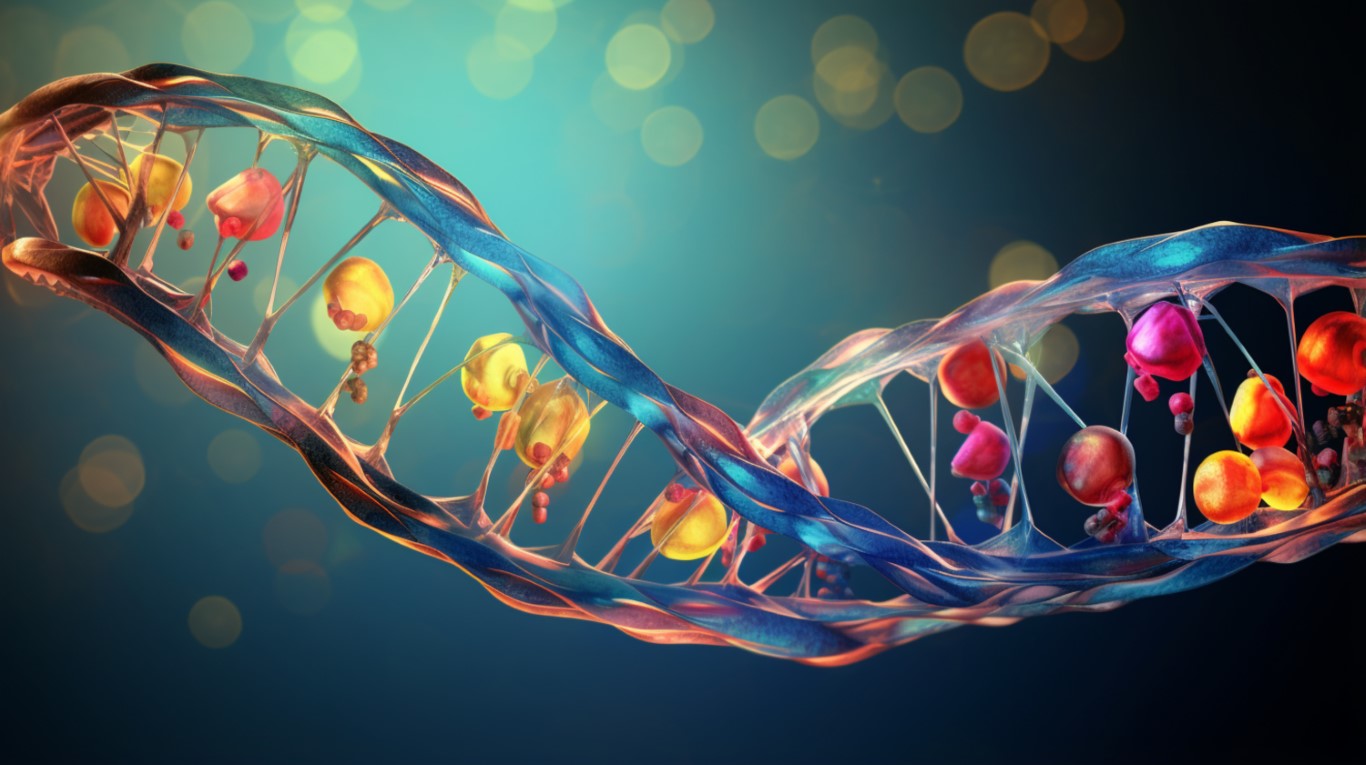Genetic modification has revolutionized the landscape of scientific exploration, impacting various facets with its technological prowess. From optimizing agricultural yields to paving the way for groundbreaking medical therapies, the ripple effects are profound.
But that's just the tip of the genetic iceberg. Stay tuned as we delve into the intricate web of biotechnological marvels, unravel the secrets of enhanced genetic comprehension, and explore how this scientific marvel intersects with the realm of environmental conservation.
The impact of genetic modification on science is a multifaceted journey worth exploring.
Key Takeaways
- Genetic modification boosts crop yields and resilience, vital for global food security.
- Precision medicine tailors treatments based on individual genetics, transforming healthcare.
- Ethical guidelines shape biotechnological advancements, ensuring responsible progress.
- Genetic editing accelerates research in diverse fields, unraveling life's complexities.
Advancements in Agricultural Production
Genetic modification revolutionizes agricultural production by enhancing crop yields and resilience to environmental challenges. Through the introduction of traits like drought resistance and pest tolerance, genetically modified crops have significantly increased yields worldwide. These advancements aren't just a small step forward; they represent a giant leap in sustainable agriculture practices.
By genetically modifying crops to withstand harsh conditions, farmers can now produce more food with fewer resources. This means less water usage, reduced pesticide application, and ultimately, a more environmentally friendly approach to farming. The ability to cultivate crops that are resilient to pests and diseases ensures a more stable food supply, even in the face of changing climate patterns.
With genetic modification paving the way for increased yields and improved crop resilience, it's evident that this technology is a game-changer for the agricultural industry. Embracing these advancements is crucial for addressing global food security challenges and creating a more sustainable future for all.
Breakthroughs in Medical Treatments
Revolutionizing the way we approach health and wellness, recent advancements in medical treatments are reshaping the landscape of modern healthcare.
- Gene Therapy Applications: Imagine a world where genetic disorders can be treated at their root cause, where defective genes are fixed, and diseases are eradicated from the genetic code itself. Gene therapy is making this a reality, offering hope for conditions that were once considered untreatable.
- Precision Medicine Developments: Say goodbye to the one-size-fits-all approach to medicine. Precision medicine tailors treatments to each individual's unique genetic makeup, lifestyle, and environment. No more guessing games or trial-and-error; treatments are targeted and effective from the start.
- Advanced Cancer Therapies: Cancer treatment is undergoing a revolution with genetic modification. Targeted therapies are attacking cancer cells specifically, minimizing damage to healthy tissues and improving outcomes for patients.
- Personalized Vaccines: The future of vaccines lies in personalization. Using genetic information, vaccines can be tailored to an individual's immune system, maximizing effectiveness and reducing the risk of adverse reactions. Say hello to a new era of preventative medicine.
Evolution of Biotechnological Innovations
Embracing the latest advancements in biotechnology is essential for staying at the forefront of scientific progress. Genetic engineering has revolutionized the landscape of biotechnological innovations, pushing boundaries and opening new possibilities in various fields. From creating genetically modified organisms for sustainable agriculture to developing gene therapies for genetic disorders, the impact of genetic modification is profound.
Ethical considerations play a crucial role in guiding the evolution of biotechnological innovations. As we delve deeper into genetic engineering, it's imperative to weigh the benefits against potential risks and ethical dilemmas. Balancing scientific advancement with ethical standards is key to ensuring the responsible development and application of biotechnological innovations.
The evolution of biotechnological innovations is a dynamic process, constantly shaped by scientific discoveries and societal values. By actively engaging with genetic engineering and navigating the associated ethical considerations, we pave the way for groundbreaking advancements that can positively impact human health, agriculture, and the environment. Stay informed, stay curious, and embrace the future of biotechnology.
Enhanced Understanding of Genetics
Unlock the secrets of DNA to propel your understanding of life's blueprint into uncharted territories. Genetic modification has revolutionized the way we perceive gene expression and genetic engineering. Here's how it's enhancing our comprehension of genetics:
- Precision Editing: Genetic modification allows for precise editing of DNA sequences, enabling scientists to pinpoint and modify specific genes with accuracy.
- Enhanced Gene Expression Studies: Through genetic modification techniques, researchers can delve deeper into how genes are expressed and regulated, shedding light on intricate genetic mechanisms.
- Unraveling Complex Traits: Genetic engineering helps unravel the genetic basis of complex traits, providing insights into diseases, behaviors, and other intricate biological characteristics.
- Accelerated Research: By facilitating rapid modifications and analysis of genetic material, genetic modification accelerates research in various fields, driving scientific advancements at an unprecedented pace.
Influence on Environmental Conservation
Genetic modification technologies are reshaping strategies for environmental conservation, driving impactful changes in biodiversity preservation and ecosystem sustainability. By manipulating the genetic makeup of organisms, we aren't only enhancing agricultural practices but also contributing to the restoration of ecological balance. The ability to create genetically modified organisms that are more resilient to environmental stressors can play a crucial role in maintaining biodiversity and ensuring sustainable resource management.
Through genetic modification, we can develop crops that require fewer resources to thrive, thus promoting sustainable agriculture and reducing the strain on ecosystems. This innovation enables us to cultivate plants with enhanced resistance to pests and diseases, decreasing the need for harmful pesticides that can disrupt the natural habitat. Additionally, genetically modified organisms can aid in restoring degraded environments by promoting soil health and ecosystem resilience.
Frequently Asked Questions
How Do Ethical Considerations Play a Role in the Use of Genetic Modification in Science?
When considering genetic modification in science, ethical implications are crucial. Public perception often influences decisions. It's imperative to weigh the potential benefits against ethical concerns, as public trust is essential for progress.
What Are the Potential Long-Term Effects of Widespread Genetic Modification on Ecosystems?
When genetic modification becomes widespread, you must consider the potential long-term effects on ecosystems. Altering genes can disrupt ecological balance, impact biodiversity, and trigger evolutionary consequences, affecting adaptation dynamics within ecosystems. Proceed cautiously to safeguard nature's harmony.
How Are Regulatory Bodies Ensuring the Safety of Genetically Modified Products for Consumption?
You're wondering how safety regulations guarantee the security of genetically modified products for consumption. Regulatory bodies rigorously test these items to ensure they meet standards, promoting consumer confidence in the safety of modified foods.
What Are the Challenges Faced in Implementing Genetic Modification on a Global Scale?
Challenges in implementing genetic modification globally are vast. Legislation, public acceptance, and ethical concerns pose significant hurdles. Overcoming these obstacles requires strategic planning, effective communication, and collaboration among diverse stakeholders.
How Do Socioeconomic Factors Impact the Accessibility of Genetic Modification Technologies in Different Regions of the World?
You must acknowledge the stark reality of socioeconomic disparities impacting accessible genetic modification tech worldwide. Global inequality dictates who benefits, perpetuating an unjust divide. Addressing these issues is crucial for progress in science.
Conclusion
In conclusion, genetic modification has revolutionized science with its impact on agriculture, medicine, biotechnology, genetics, and environmental conservation.
The advancements made in these fields have propelled scientific research to new heights, pushing boundaries and opening doors to endless possibilities.
With the power of genetic modification, the future of science is bright and full of potential for further innovation and discovery.
Embrace the revolution, and let genetic modification pave the way for a bold and exciting future in science.


Really excellent information can be found on web site.